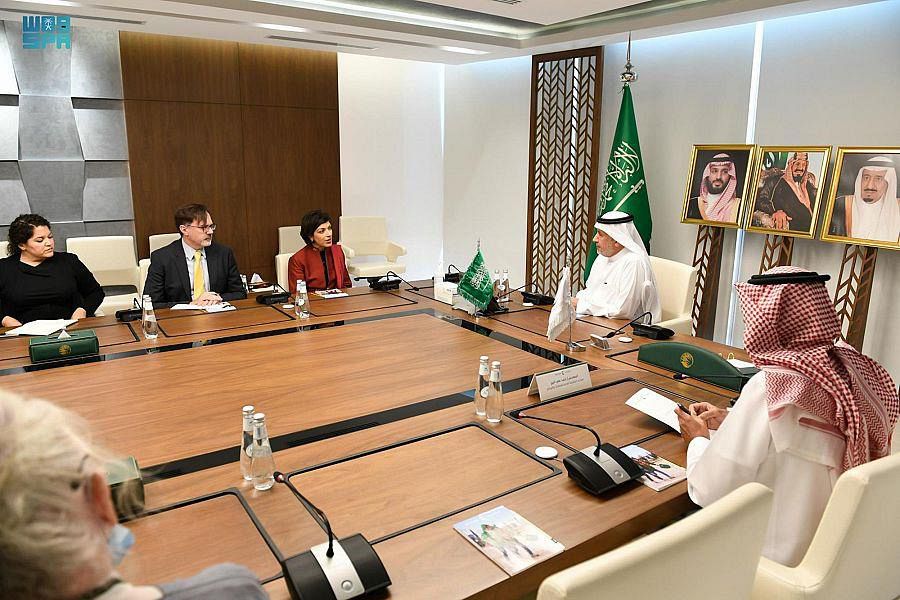
Electoral body says hundreds of polling sites need to be verified
KABUL: Despite a protracted verification process, Afghanistan’s Independent Electoral Complaints Commission (IECC) failed to declare a winner in the crucial presidential elections held in September last year, before calling for a special audit of hundreds of polling sites on Wednesday.
IECC Chief Zohra Bayan Shinwari said that over the past month, the body had verified a total of 22,500 complaints — both in the provinces and at its Kabul office. The complaints were filed in 29 provinces.
“Fifteen percent of the 102,012 votes cast outside the polling hours will be subject to a special audit. If 65 percent of the 15 percent (of votes that will be subjected to an audit) meet those criteria, then all of those votes will be considered as valid, but even if 35 percent do not fulfill those criteria, then all of the 102,012 votes will go for (a further) audit,” she told a news conference on Wednesday.
Shinwari added that out of the more than 1.8 million votes cast during the elections, nearly 300,000 were deemed suspicious as they were either cast outside polling hours or failed to meet standards to minimize fraud.
Those measures included the use of biometric devices and matching the names of voters with result sheets.
Mohammad Qasim Elyas, a senior IECC employee, said that out of the “suspected” 137,630 votes, 10 percent would be subject to a special audit.
“If 65 percent of those votes meet the criteria, then it shows all of these votes are valid, and if 36 percent do not, then all of these will be sent for an audit,” he said.
Shinwari said that the IECC had performed its “duty with utmost honesty and transparency” and that the Independent Elections Commission (IEC) — which conducted the September polls — was now bound to conduct the special audit and announce the final results.
“The IEC will conduct the audit in the presence of delegates of the candidates and observers of the IECC, specify the number of votes and then release the final results,” she said, adding that under the law, there was no timeframe for how it should take the IEC to conduct a further audit.
Elyas, however, was hopeful that the results would be announced after a week.
“I am certain that when these charts are shared (with the IEC), then within a week … the final results will be announced …there will be no special problem,” he said.
The final results were supposed to be announced in November last year.
However, following complaints of fraud and mismanagement, the IEC released initial results last month, showing incumbent Ashraf Ghani secured just over 50 percent of the vote, while his arch-rival Dr. Abdullah Abdullah — who serves as the chief executive — claimed the remaining chunk.
Abdullah and a number of other candidates rejected the preliminary results, alleging that fraud had taken place to tilt the results in favor of Ghani.
Both Ghani and Abdullah have shared power in the National Unity Government (NUG) following a US-brokered deal after allegations of fraudulent 2014 polls failed to declare a winner.
The September ballot took place amid complaints of massive irregularities and saw scores of deadly attacks by the Taliban and lower voter turnout compared to any other vote held since the Taliban’s ousting in 2001.
Of the more than nine million qualified voters, only 1.8 million participated. Initially, the IEC had said that over 2.7 million had participated in the vote, but that number was revised to 1.8 million after thousands of votes were deemed invalid.
Mohammad Yousuf Rashid, head of the Free and Fair Elections Forum in Afghanistan, said that the harsh winter weather and violence in various parts of the country posed a major challenge for the IEC to conduct the special audit now.
“In some parts, the process of the audit will take time and it is not clear how the IEC will be able to conduct the audit apart from the weather and fighting problems,” he told Arab News on Wednesday.
At least two officials with the IEC and an election observer, all speaking on condition of anonymity, told Arab News that one likelihood was that the polls would go to a second round, and could take place in April once winter was over.
The prolonging of the election process comes amid a restart of talks between the Taliban and US diplomats who are scrambling to resolve the decades-old war which will also see the departure of foreign troops from Afghanistan.
The Taliban considers Ghani a “US puppet,” calling the polls a sham, while Ghani has said a strong legitimate government, formed as a result of the polls, could initiate and lead peace talks from a position of strength.
Fazel Ahmed Manawi, a former IEC chief, was confident that the polls would go to a second round.
“It will definitely go to a runoff. But final results won’t be announced within the next month as its audit and implementation is time consuming,” he told Arab News.
In a statement released on Tuesday, the UN said that safeguarding the integrity of the electoral process was paramount.
“It has required considerable resources and time. We are committed to supporting the efforts of all stakeholders working to protect the integrity of the elections and the will of Afghan voters,” it said before urging “all stakeholders” to respect the electoral process.
“Let the commissions perform their work independently and free from interference. We remind all candidates and their supporters of their obligations under the law. Above all, stakeholders must refrain from any actions that could lead to instability, or compromise the credibility of the electoral process,” it added.









